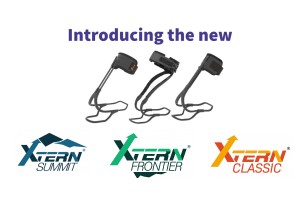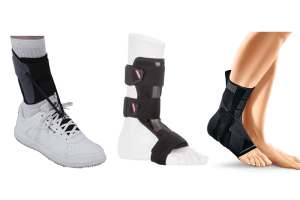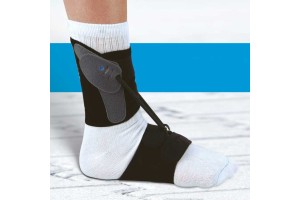At the Buchanan clinic, we have been making orthoses for over 50 years. Our Orthotists have extensive experience in manufacturing and designing AFOs, which are made at our factory and head office in Helen Street, Glasgow.
What is an AFO?
Ankle foot orthosis is the clinical name for devices which are sometimes called splints, braces or calipers. They are named based on the joints that they cover so as they cover the ankle and the foot we get the name AFO.
AFO is a general name and it will cover any device that covers these joints.
Who Wears AFOs?
There are many reasons someone will be required to wear an AFO. They can provide support where there is weakness, limit painful movements or prevent deformity where there is spasticity.
Some conditions that can require the use of the AFO are:
- CP
- Stroke
- MS
- Polio
- Spina bifida
- Foot drop
- Head injury
- Nerve injury
- Foot and ankle Trauma/Fracture
There are however numerous other reasons that they are required.
Book an Assessment
What are they made from?
Metal
Caliper or Below knee Irons are made from steel or Aluminium. They attach into sockets which have been added into the shoe. They will extend up to the calf band which is often covered in leather with velcro or buckle fastening.
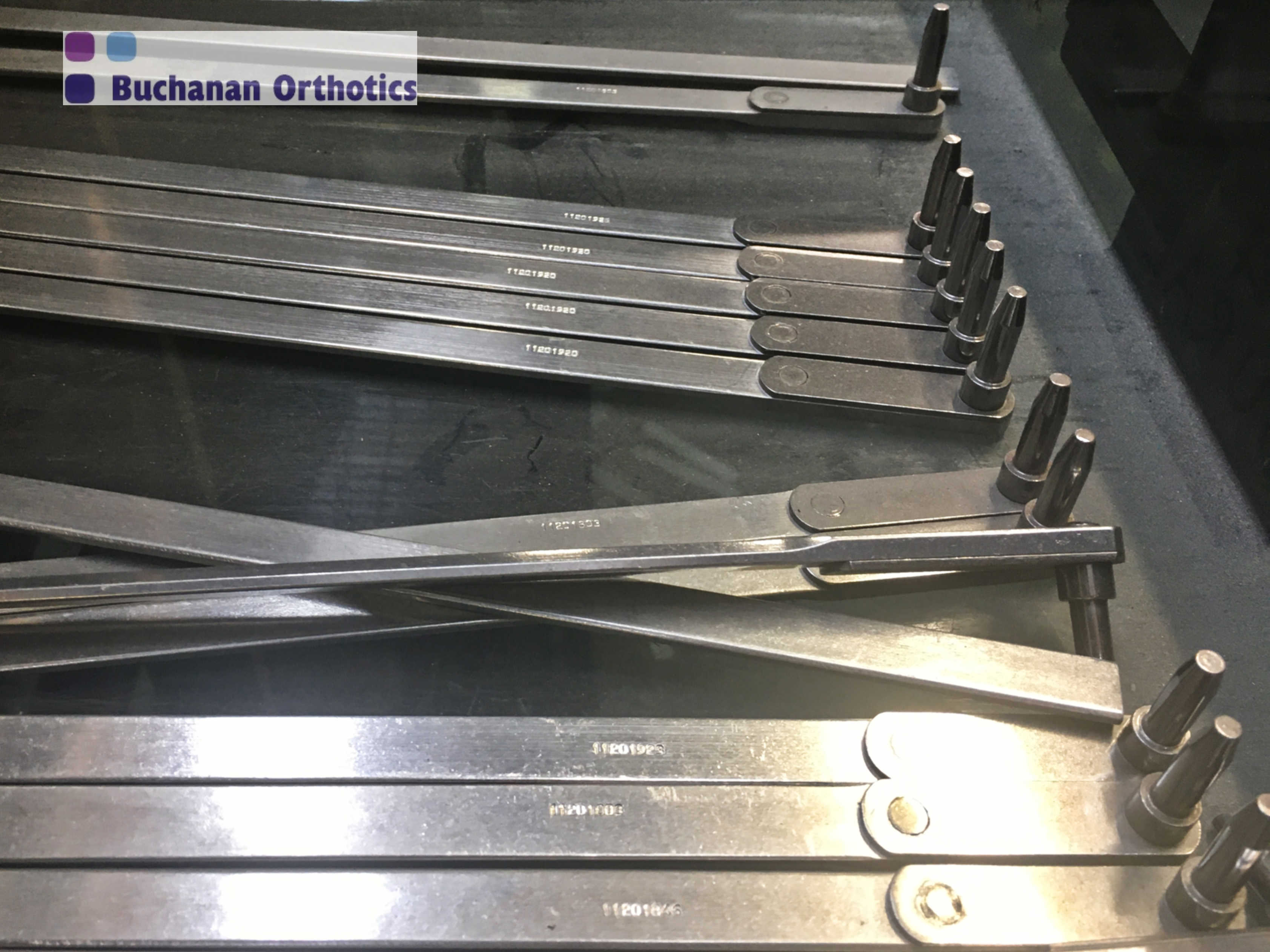
Row of single BK Irons prior to manufacture
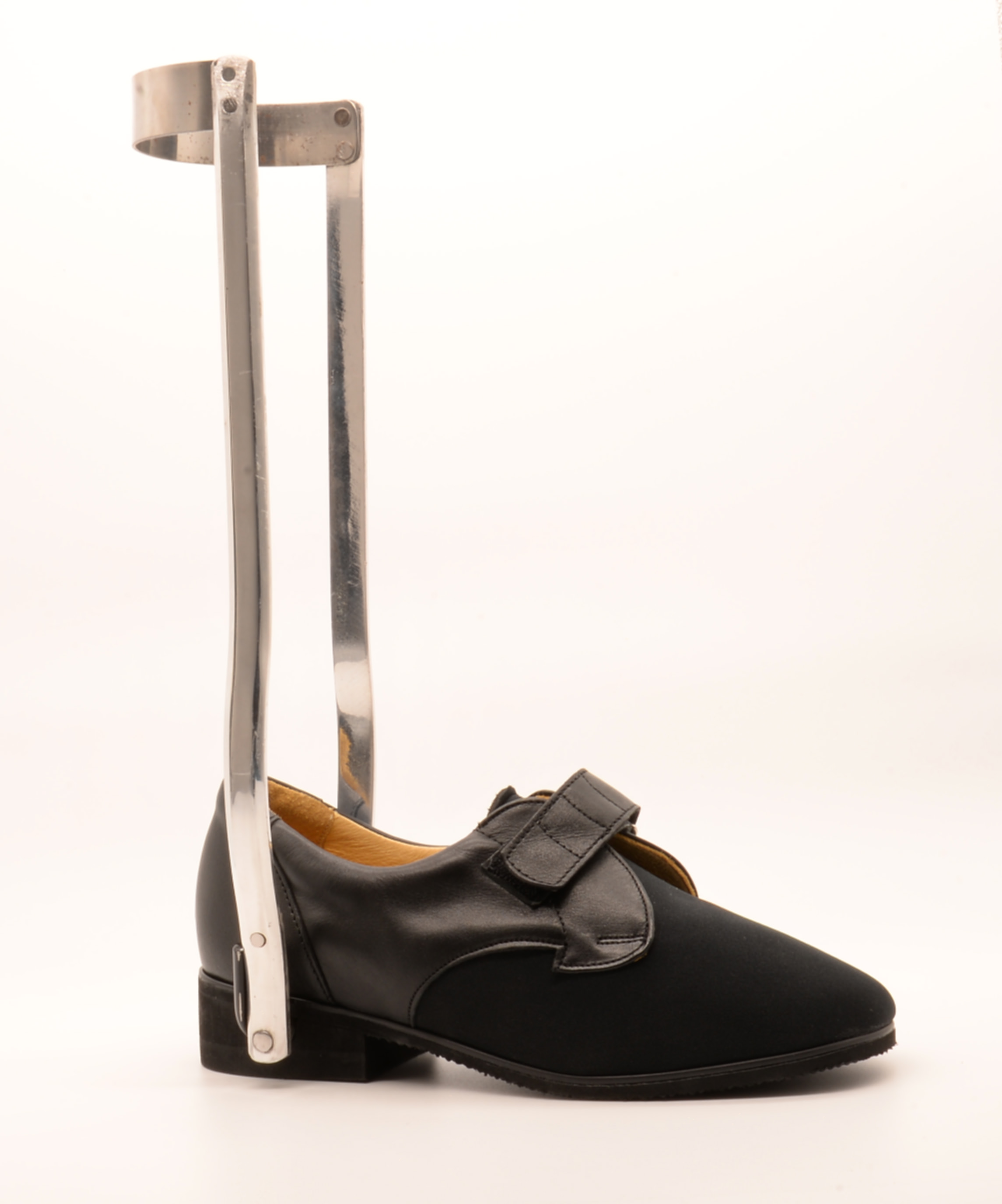
Shoe adapted with caliper fitted
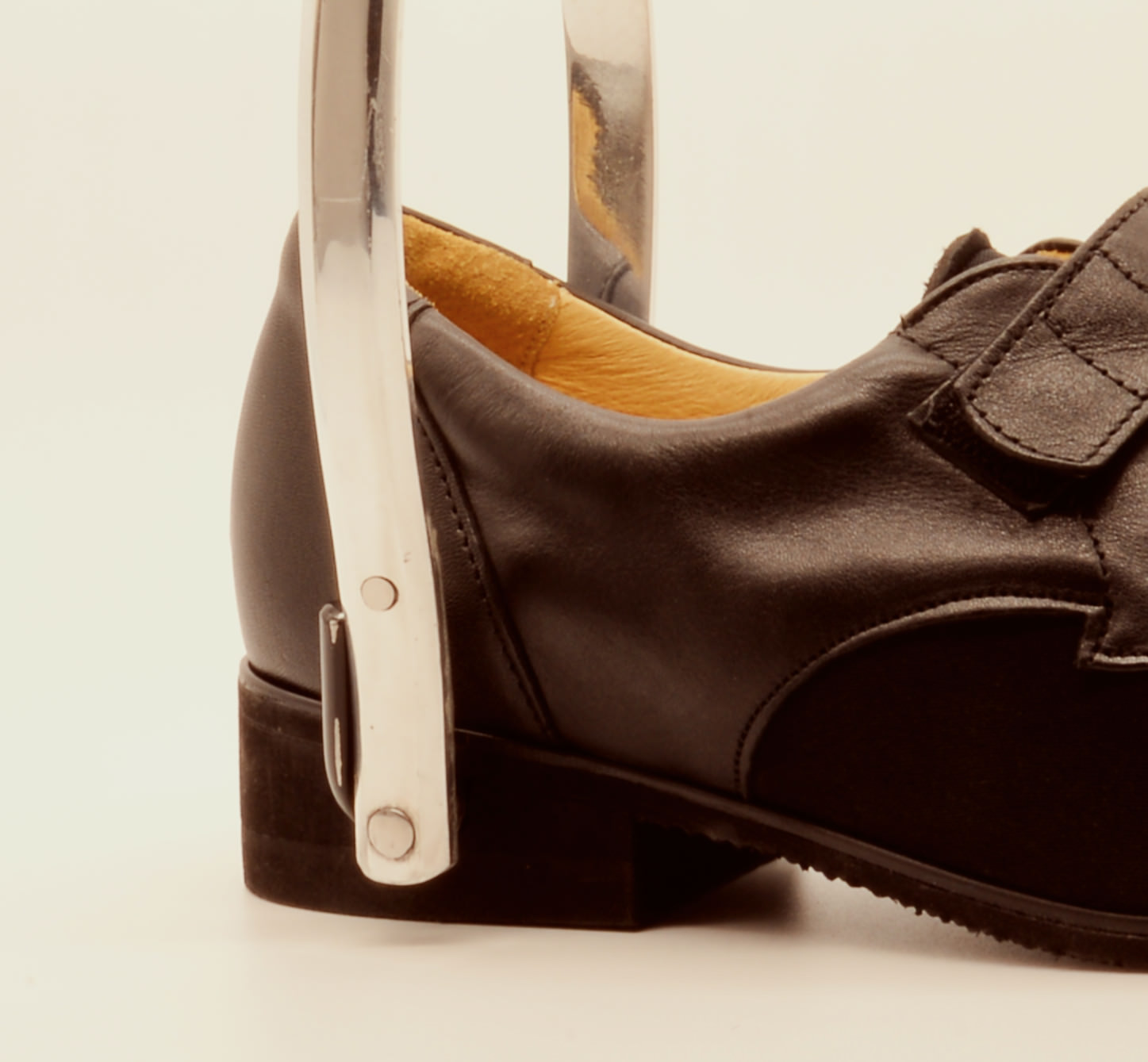
Close up of Socket, backstop and BK Iron
Thermoplastic
Ankle Foot Orthosis (AFOs) can be made from various types of plastic, each chosen for its specific strengths. The most common types are:
- Homopolymer polypropylene: This is a strong and rigid plastic, ideal for AFOs that need to provide a lot of support.
- Copolymer polypropylene: This is a more flexible type of plastic, better suited for AFOs that need to allow some movement while still offering support. This is the most common plastic used for the production of orthotic devices.
- Ortholen (less common): This is a special plastic with a bit of springiness and that lasts a long time. It's often used for a specific kind of AFO called a "PLS" device.
3d Printed
3D printed AFOs (also known as additive-manufactured orthoses) are revolutionising the orthotics industry. This cutting-edge technology uses advanced printing techniques to create orthoses, rather than traditional methods involving heat and vacuum forming.
Buchanan Clinic is proud to be at the forefront of this innovation in Scotland. With seven 3D printers in operation and experience in producing these devices since 2020, we're committed to providing our patients with the latest advancements in orthotic care.
While 3D printed AFOs often follow traditional design principles, they offer exciting new possibilities. The process allows for intricate designs and unique concepts, pushing the boundaries of what's possible with orthotic devices. Plus, they can be crafted with a slimmer profile than traditional plastic AFOs, offering a more discreet and comfortable fit. This innovative approach opens up new opportunities for those seeking orthotic solutions for various conditions.
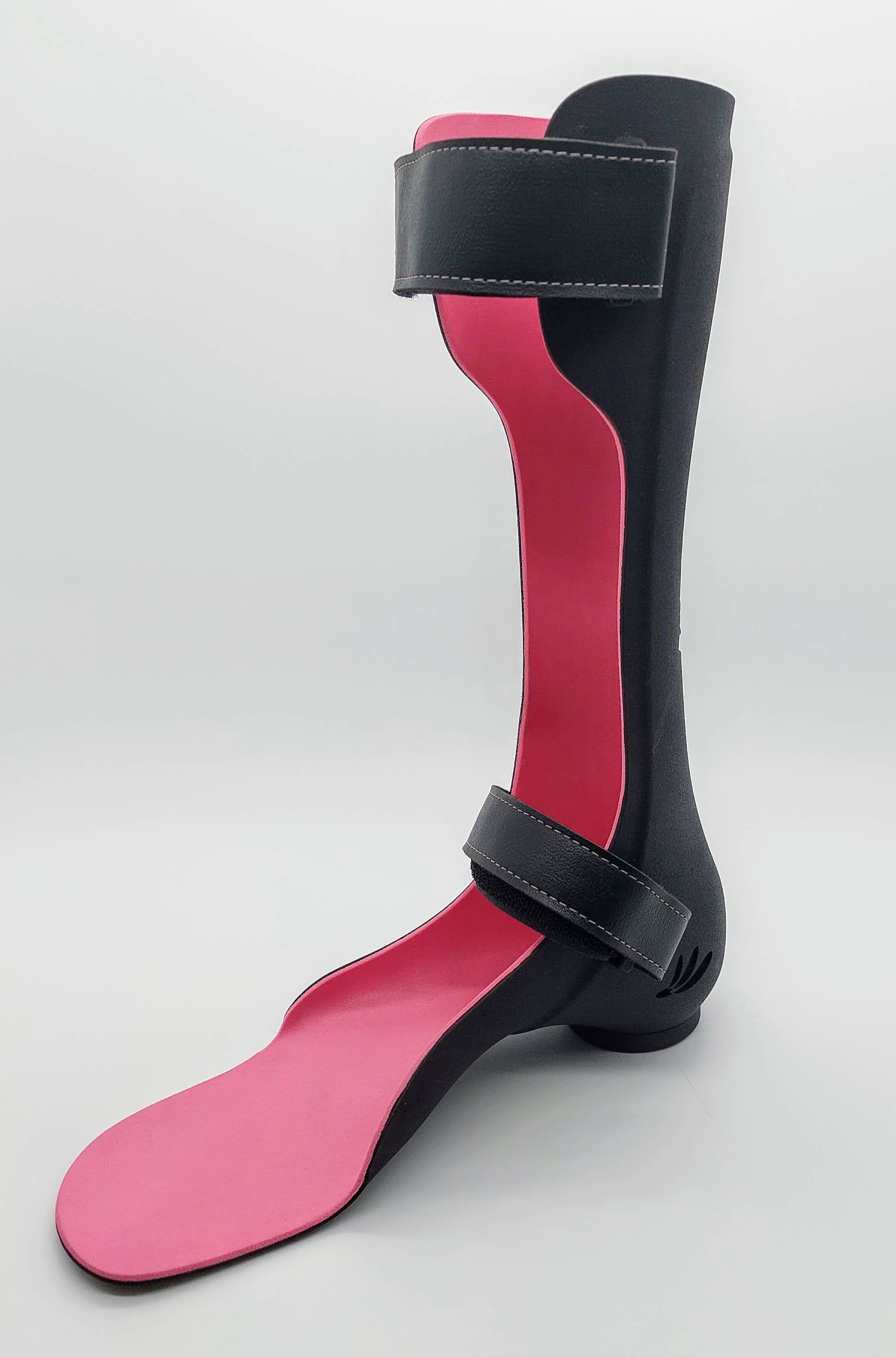
3d Printed AFO
Carbon Fibre
This is a composite material which is strong and light. Certain designs can also provide energy return based on the design. Carbon fibre AFOs not a common in the NHS due to the increased cost and the inability to adjust a device once it has been produced.
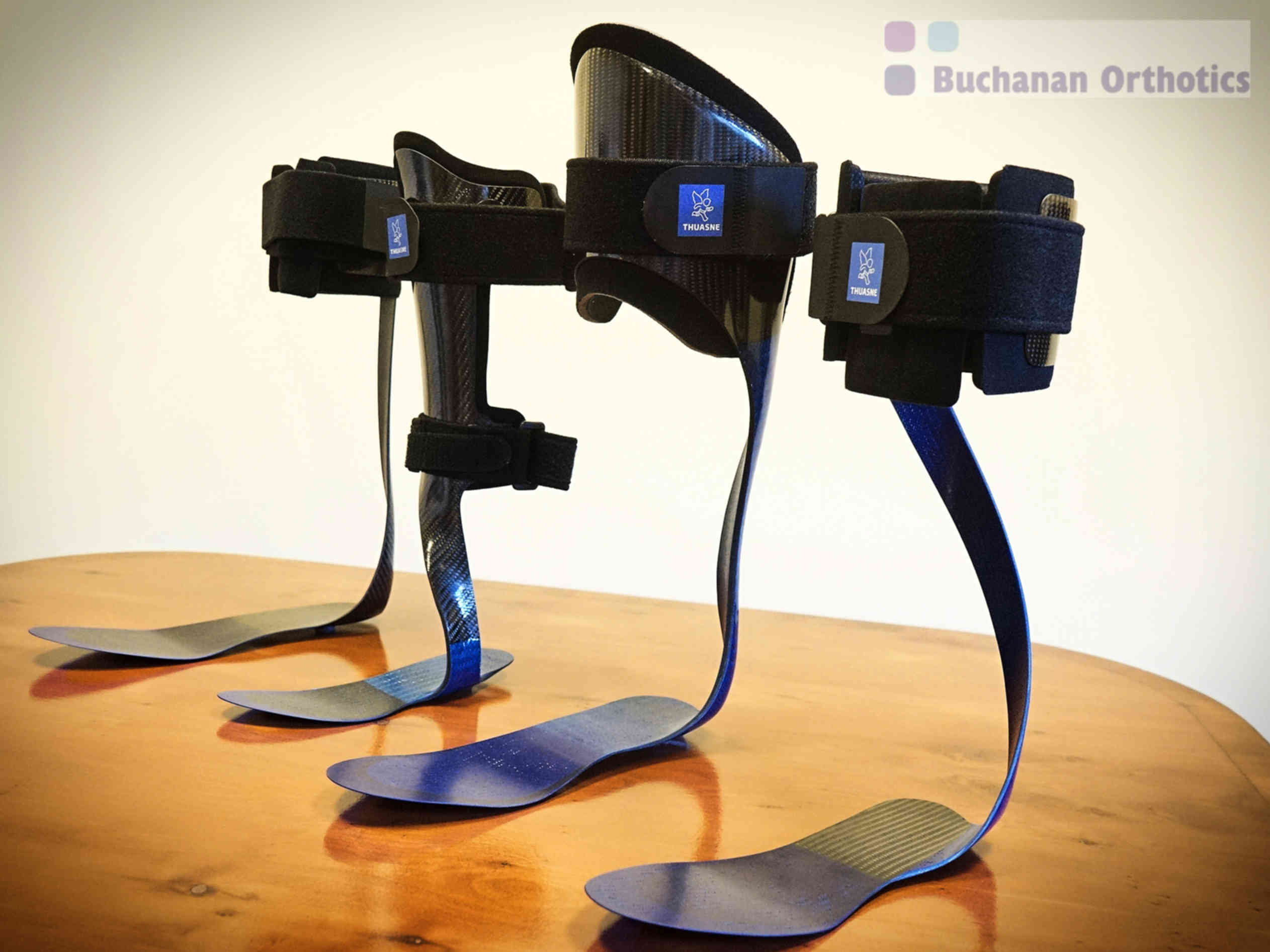
Stock Carbon Fibre AFO's
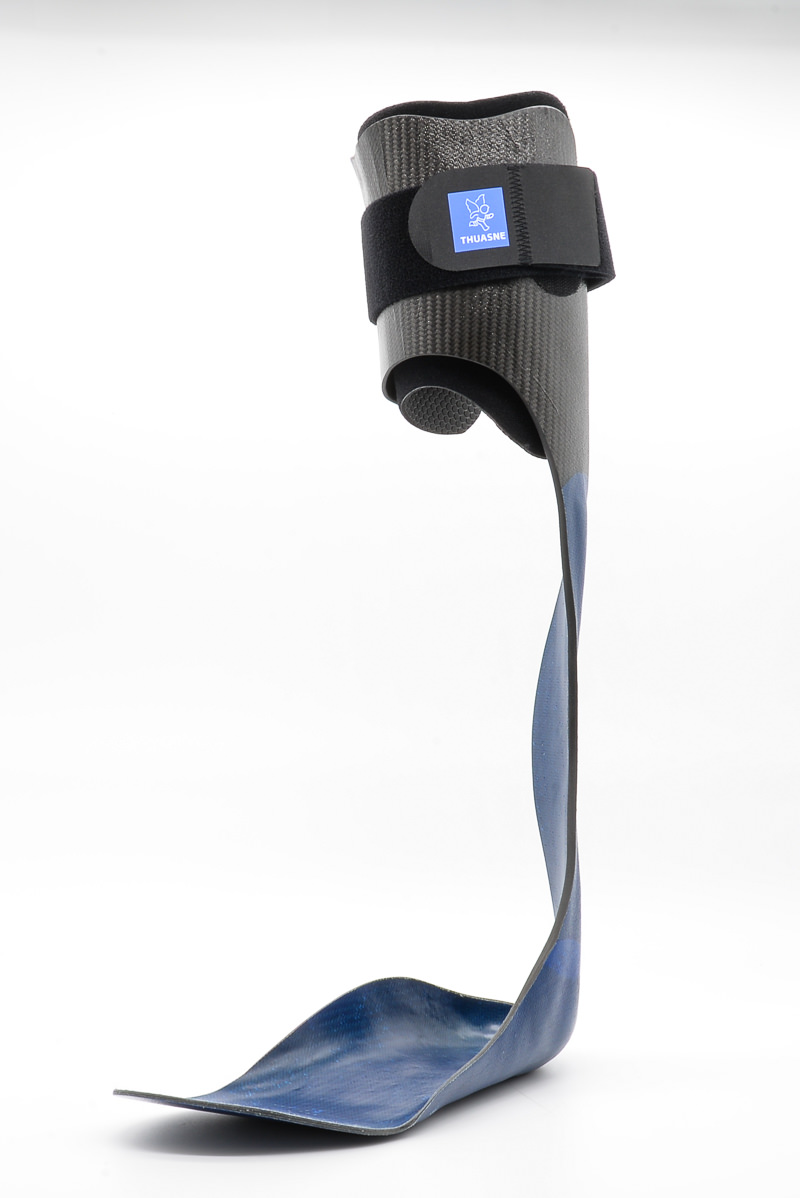
Custom Carbon Fibre AFO
Fabric
These can be made from various fabrics but will generally include elastic to provide lift and support. We have written a separate blog on different fabric devices
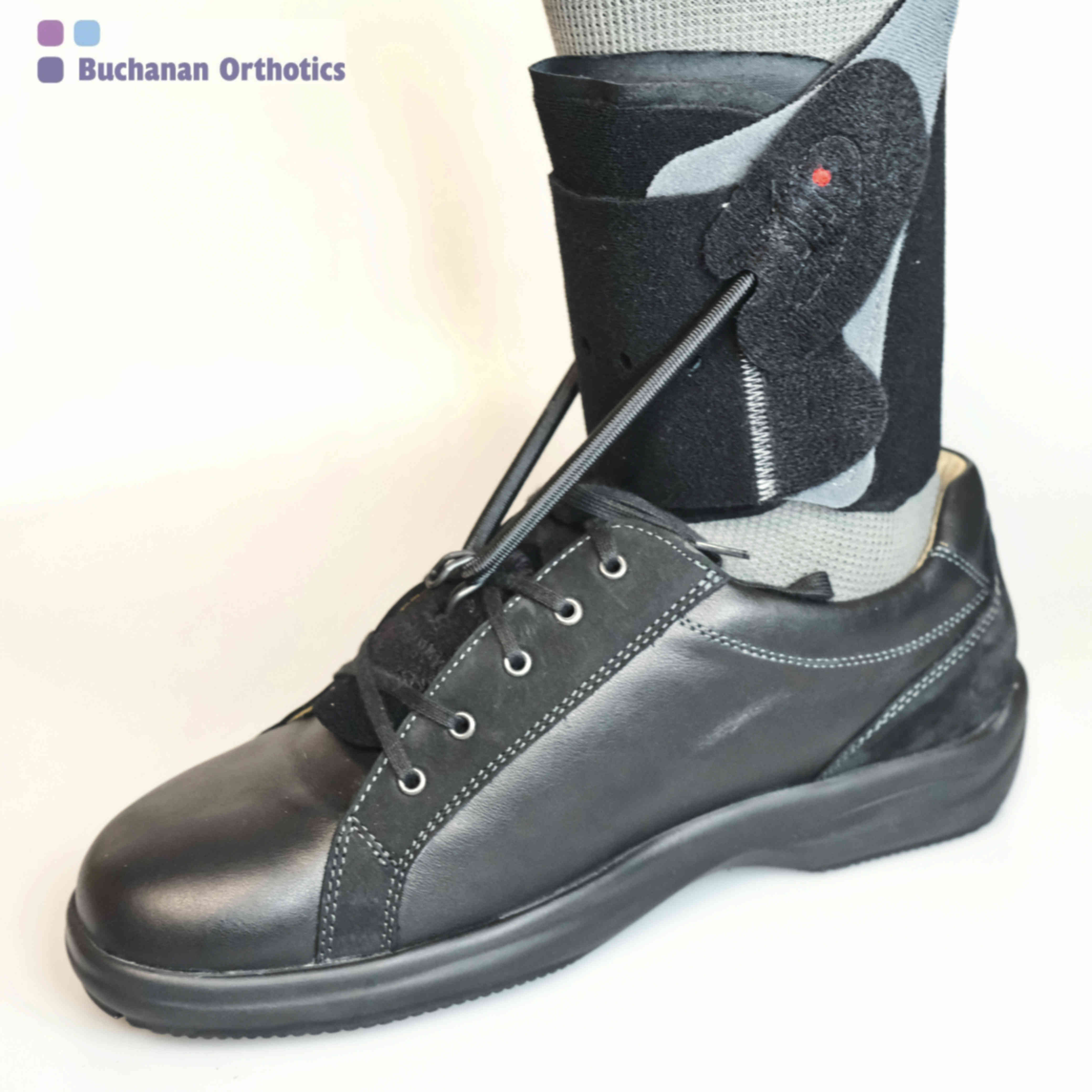
Prim Airmed Textile AFO
How are they made
AFO’s fall into two main categories of Stock and Custom made. Stock devices are based off of either a shoe size or ankle measure. Custom braces can either be made to cast, measures or 3d Scan.
Custom Made
Thermoplastic AFO’s are either made to a cast or 3d scan with casting being the most common method. Casting involves wrapping the limb in plaster of Paris bandage.
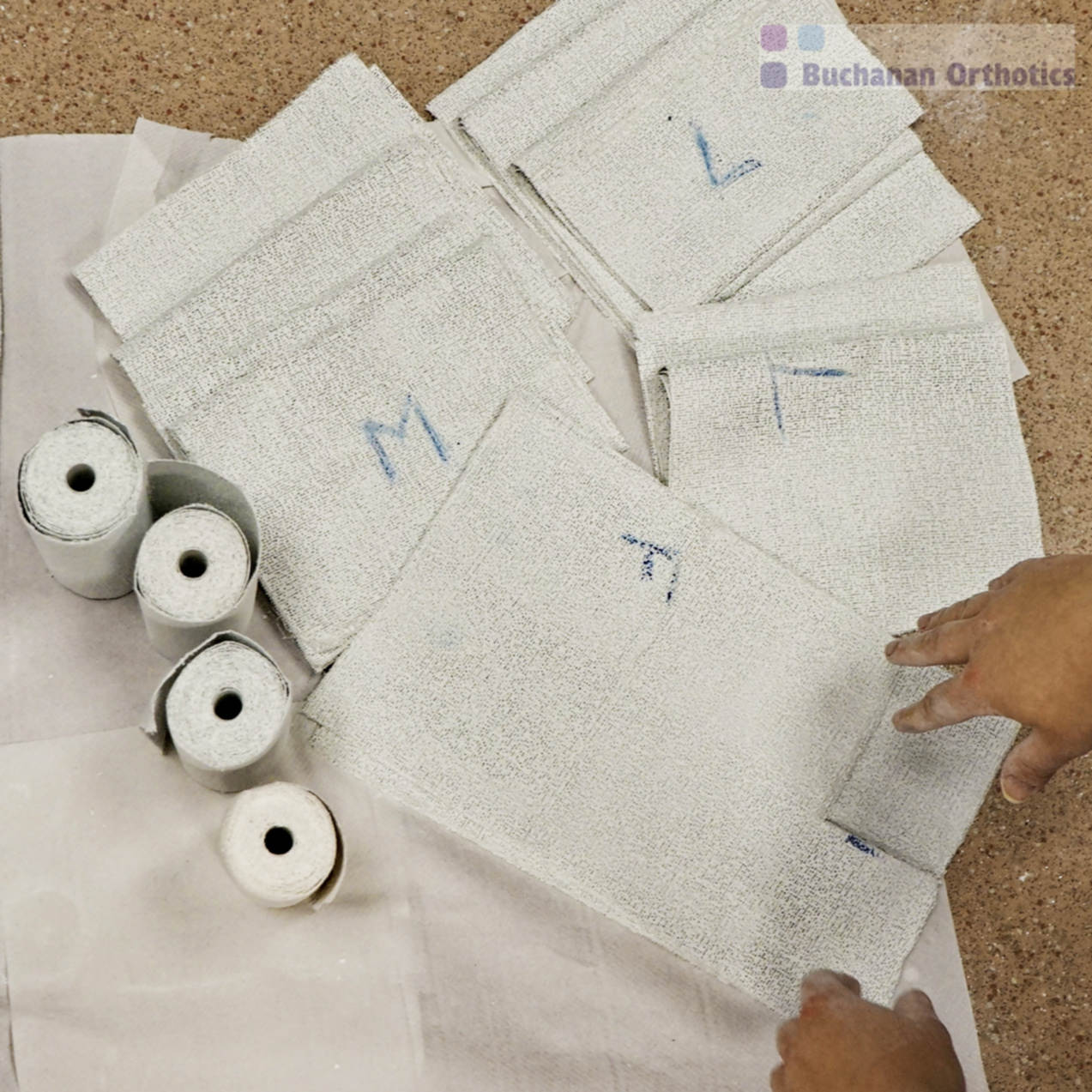
Plaster Bandage preparation prior to casting
The orthotist will then position the foot and ankle as desired. After a minute or so the cast will be removed by cutting down the front often with scissors in a plastic panel.
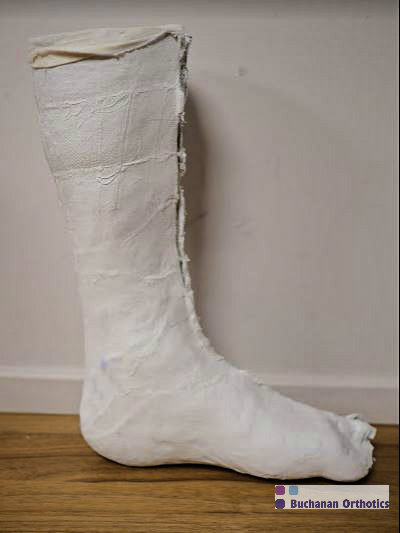
Negative Plaster Cast
To make the AFO the plaster cast is filled with plaster. Once this is set the bandage is removed to leave a positive ‘cast’ of the leg. This cast will then require rectification to ensure the AFO will fit correctly. This often involves adding material to provide clearance at bony prominence such as the ankle bones.
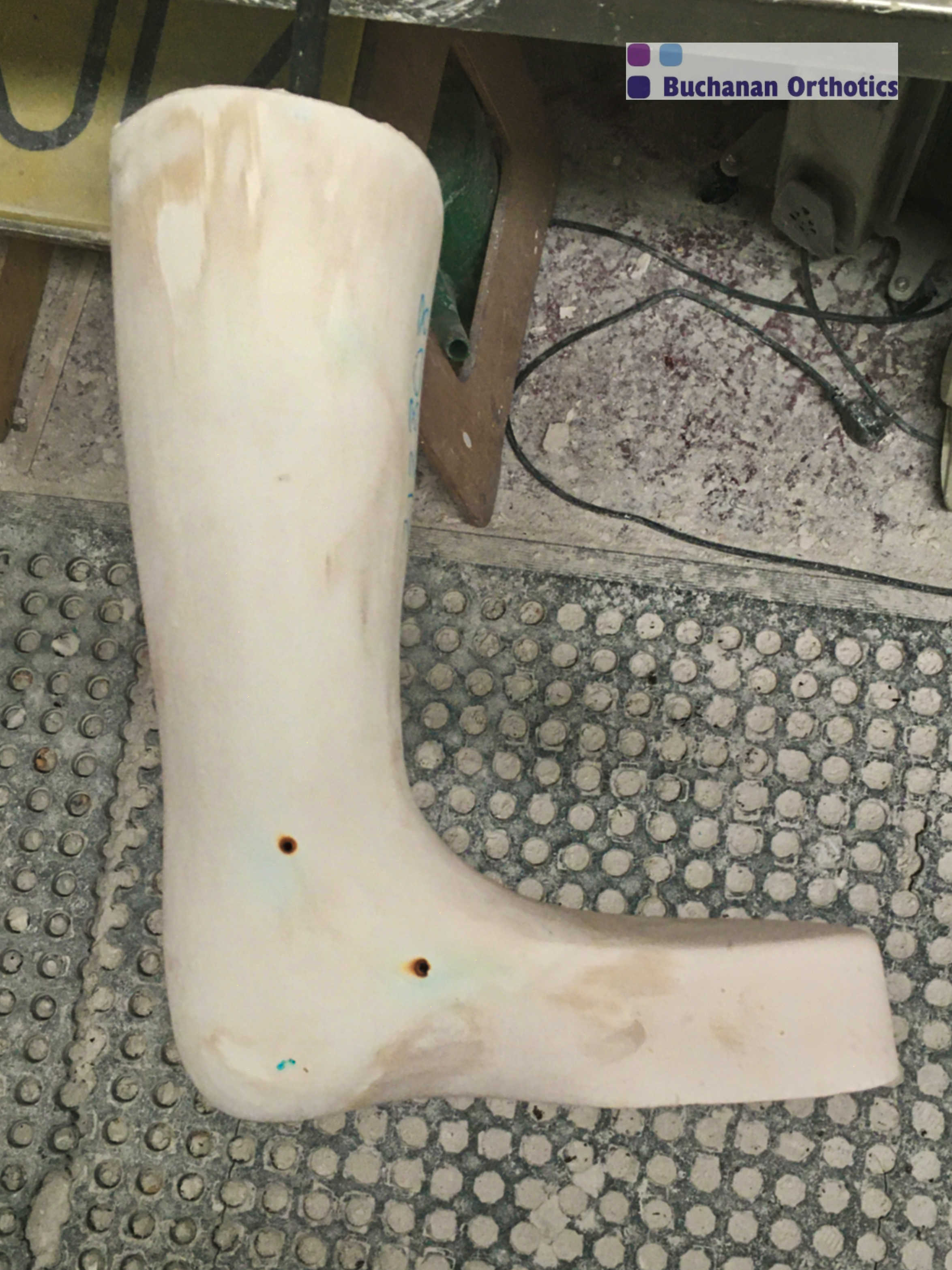
Positive Plaster cast
After shaping the mold (fixing any uneven spots), they heat up a special kind of plastic sheet in an oven. Then, they carefully stretch this warm plastic over the mold. To make sure it fits perfectly, they use a strong vacuum to suck the plastic tight against the mold. Once the plastic cools down completely, they trim the edges to make them smooth and comfortable. Finally, they add padding and straps for a good fit and support.
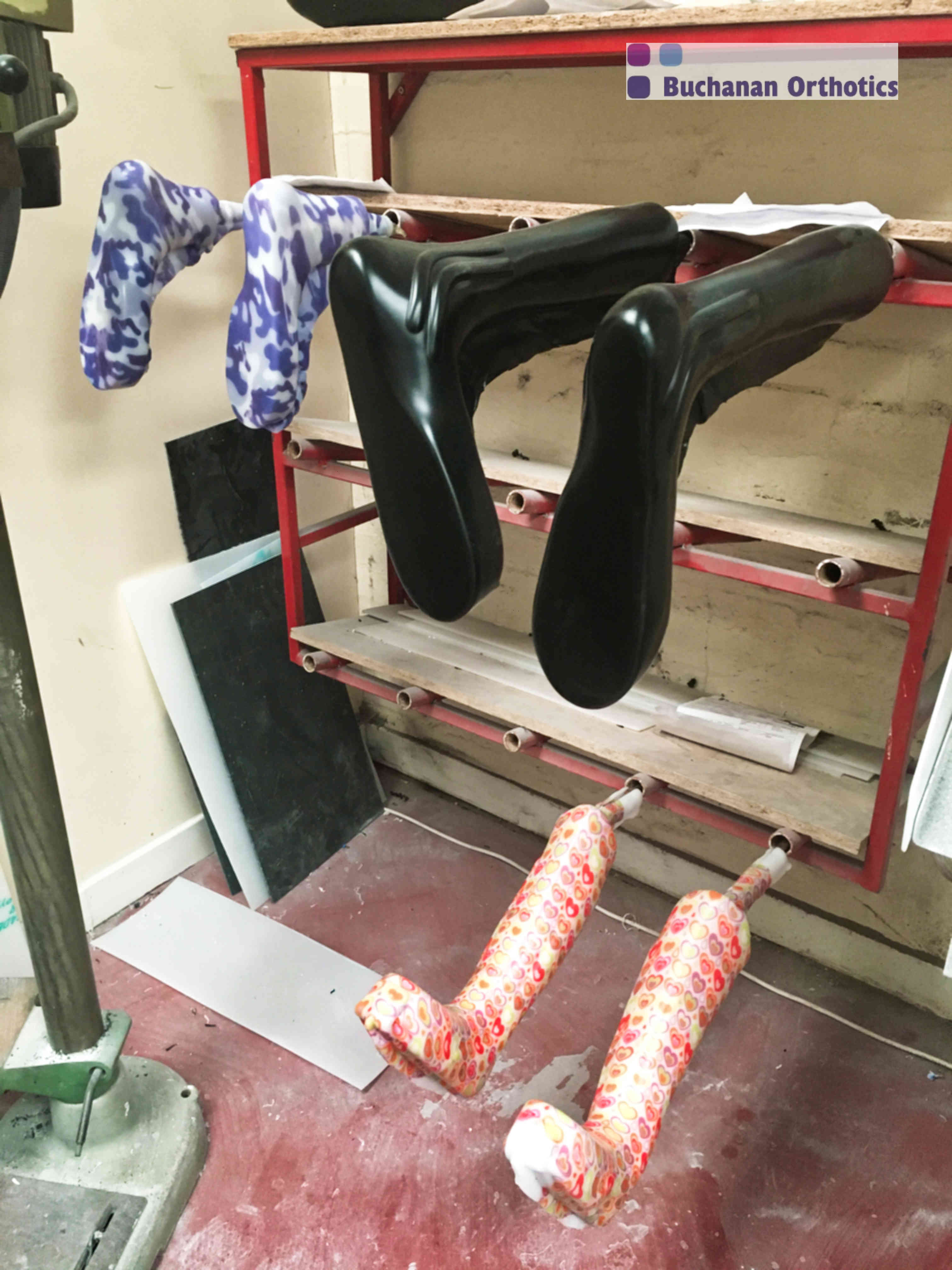
AFO's awaiting cutting off
Book an Assessment
Styles of AFO
There are a number of different styles of AFO which are mostly based on the trimlines selected by the clinician. The following styles are just a few of the possibilities.
Posterior leaf spring
The PLS style of AFO is a design to aid foot drop as it is only strong in one direction. It is characterised by a thin band of plastic up the back of the leg and is low profile in nature. It will not provide much support to the ankle.
This style of split is often used when there is only weakness in the muscles that lift the foot.
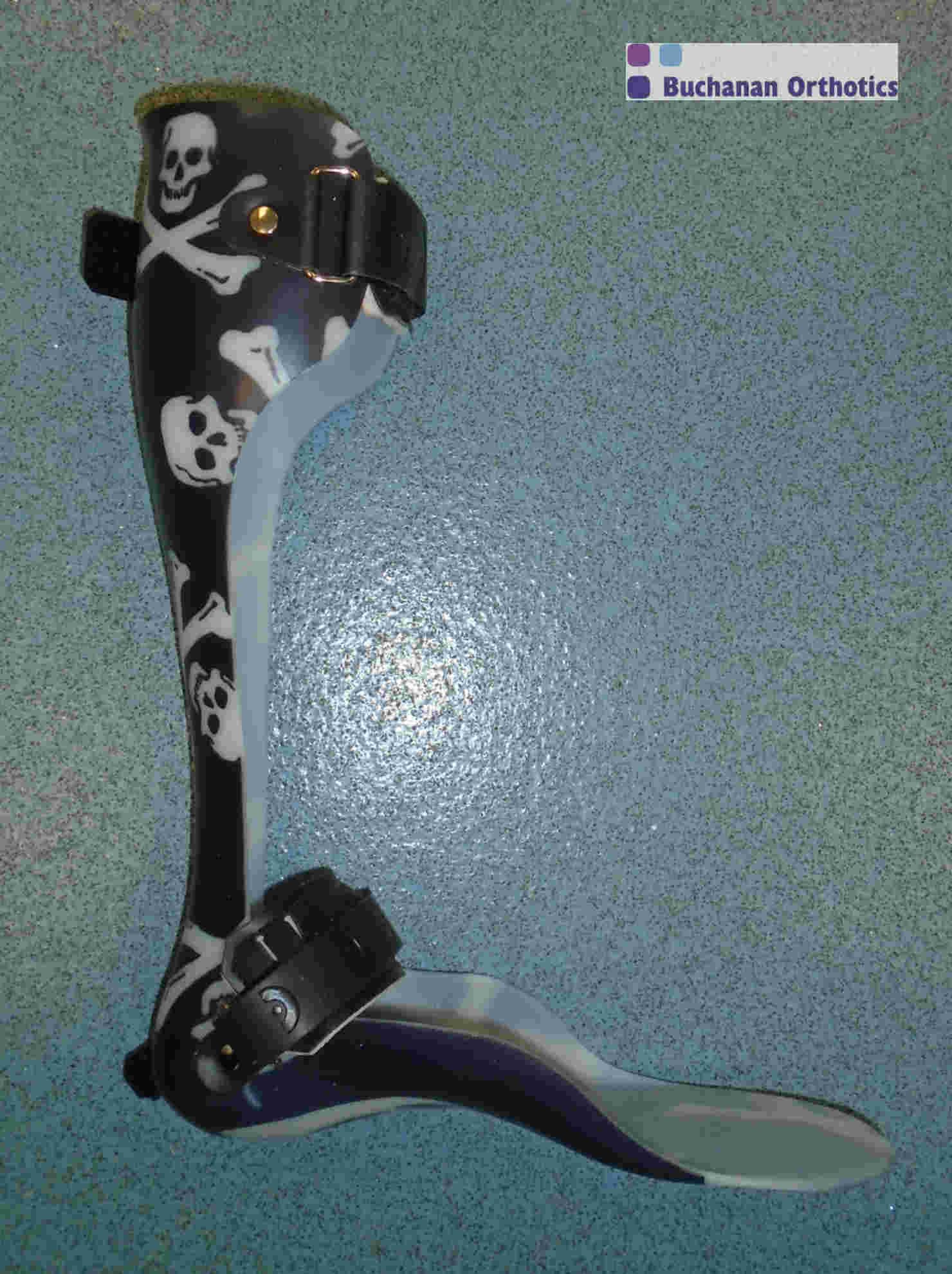
Thermoplast PLS AFO
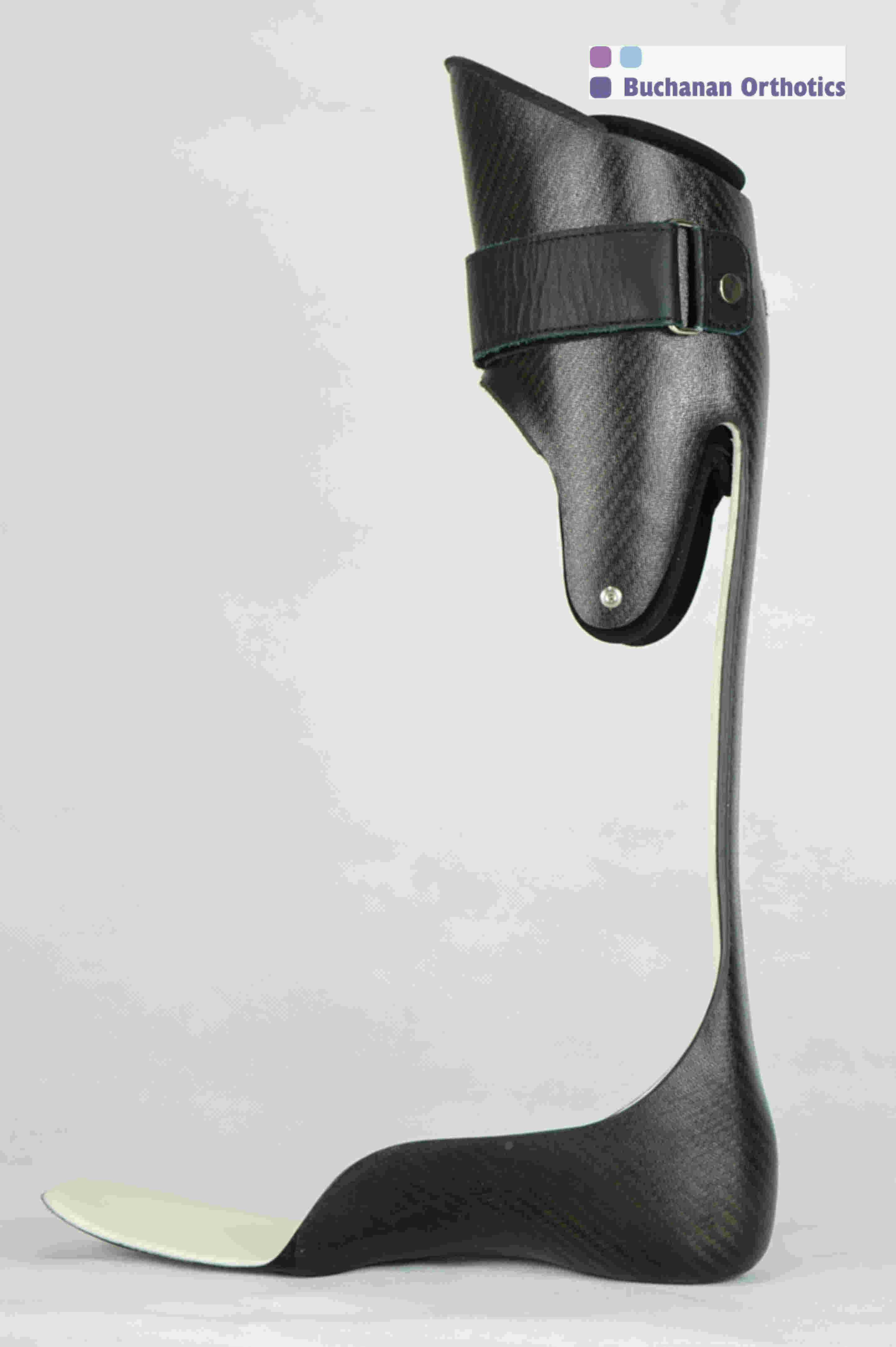
Carbon Fibre PLS with front shell
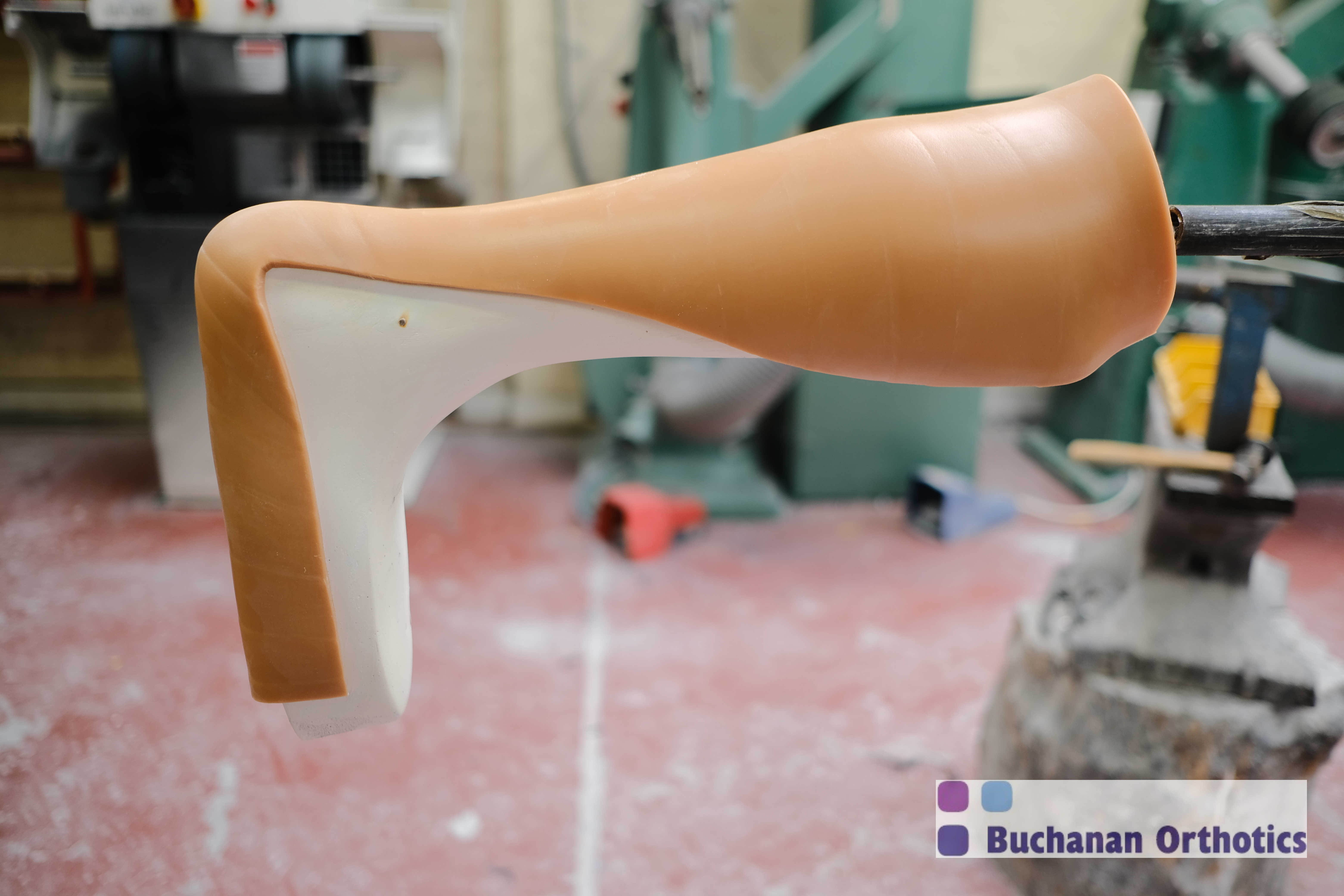
Ortholen PLS prior to trimming and finishing still on the cast
Solid Ankle
A solid AFO is like a strong cast for your ankle and most of your foot. It's made of sturdy plastic to hold your ankle joint completely still and prevent any painful movements. This type of brace is helpful if your muscles are weak below the knee or if you have a lot of muscle tone. However, the downside is that it can be bulky and make it difficult to find shoes that fit well.
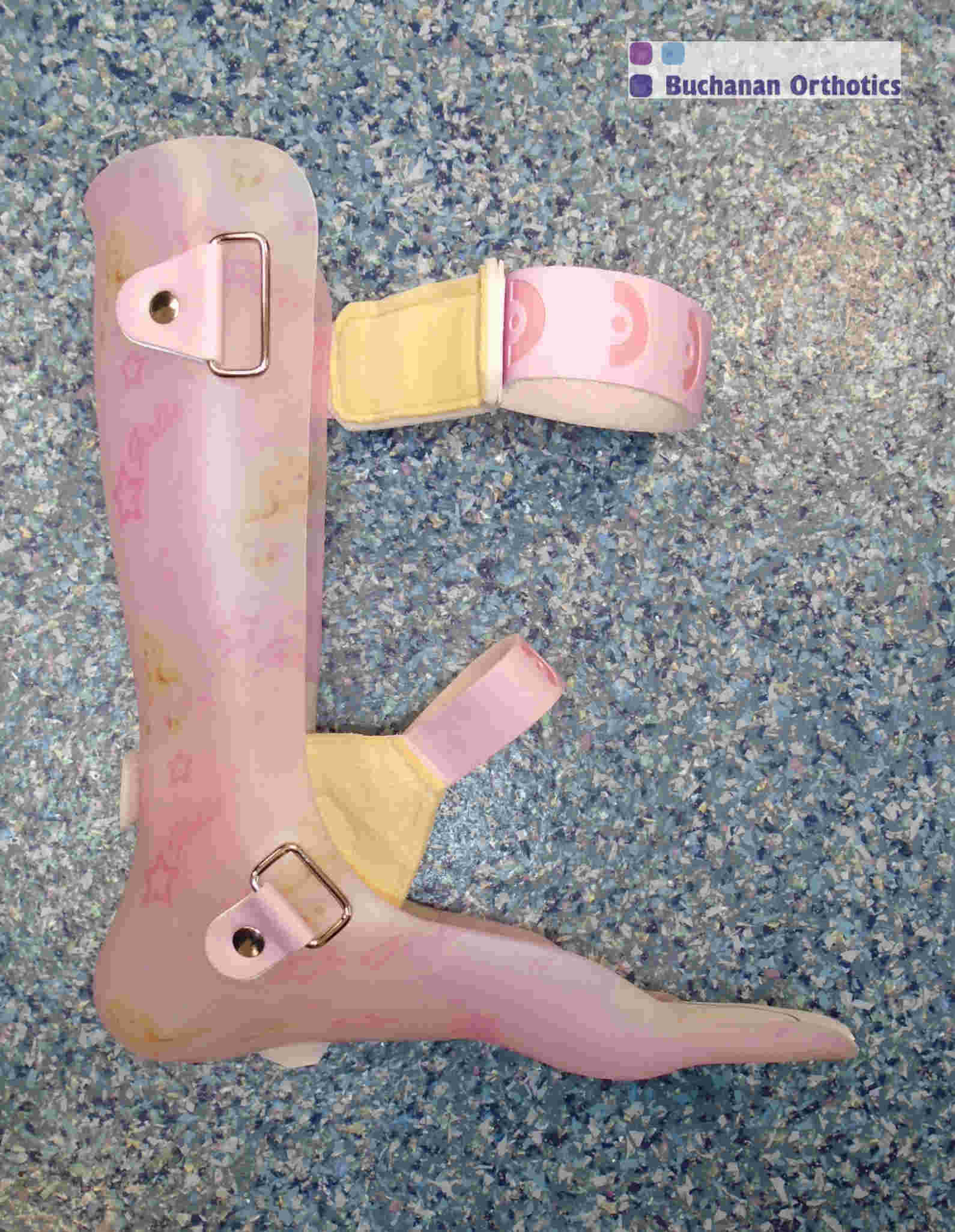
Solid Thermoplastic AFO
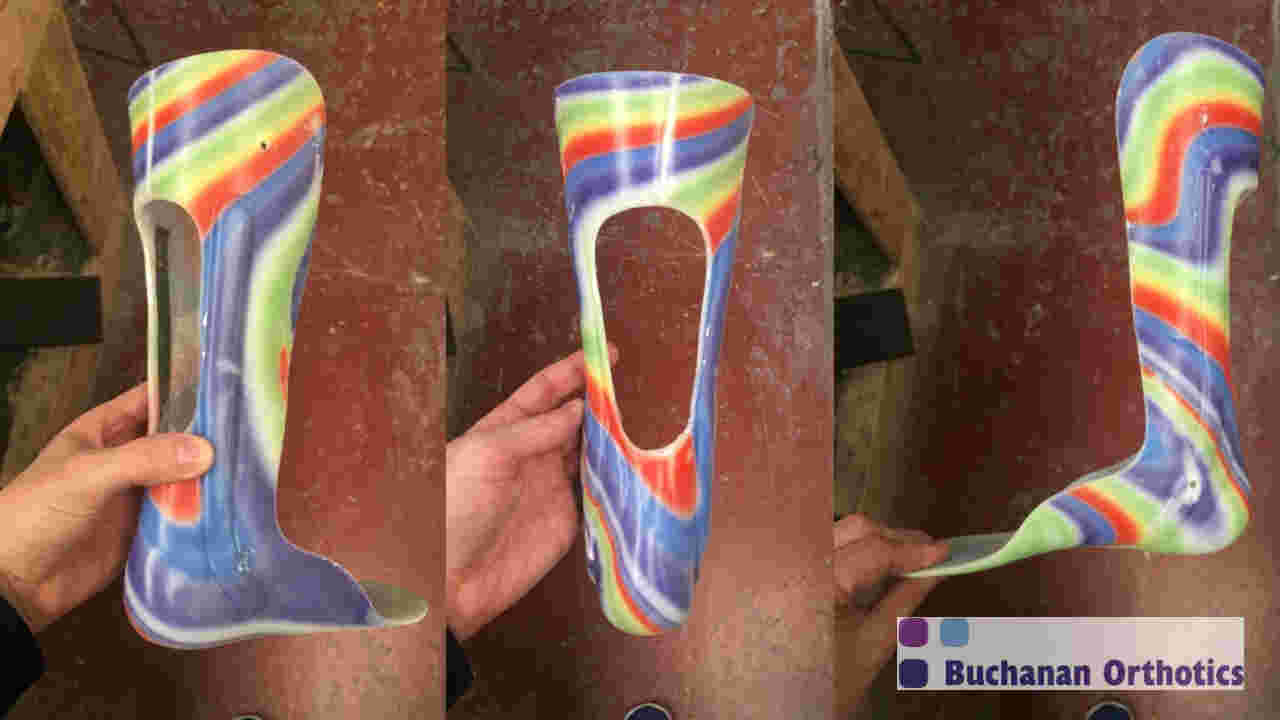
Solid AFO with posterior cut out
Hinged
A Hinged AFO is similar to a Solid Ankle AFO but has an ankle joint added. Depending on the joint selected this will allow movement in selected planes. The main disadvantage of a hinge can be the increased bulk, weight and cost of the device.
The advantage of a hinge however is that it allows ankle movement which can make walking significantly easier when compared to a solid ankle device. There are lots of joints available on the market from simple springs to lift the foot to large complicated ones to provide energy return and push off.
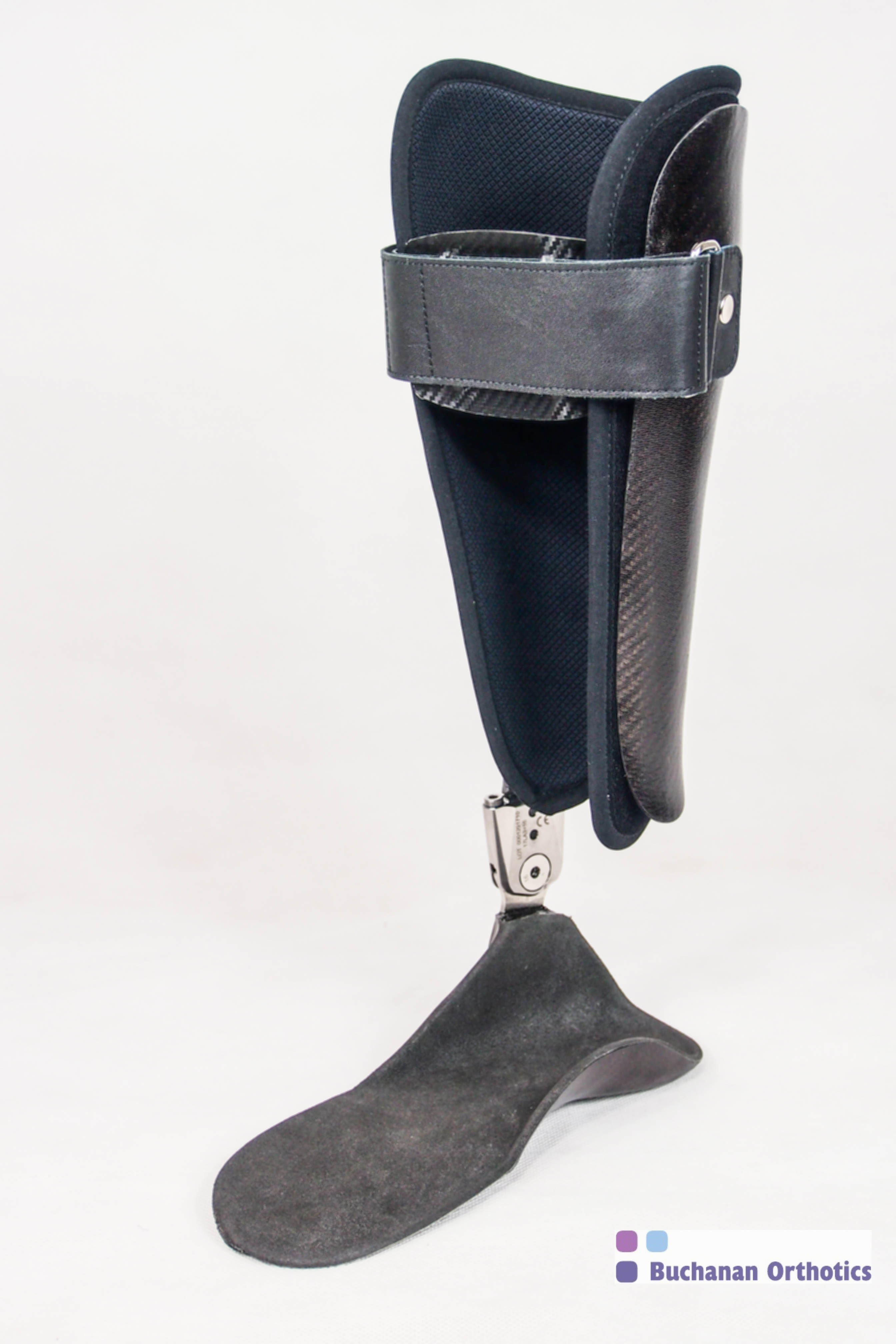
Hinged Carbon Fibre AFO
Dynamic Sturt AFO's
Dynamic Struts such as the Coyote Dynamic Strut get the advantage of replaceable components that can be selected based on your activity level and weight.
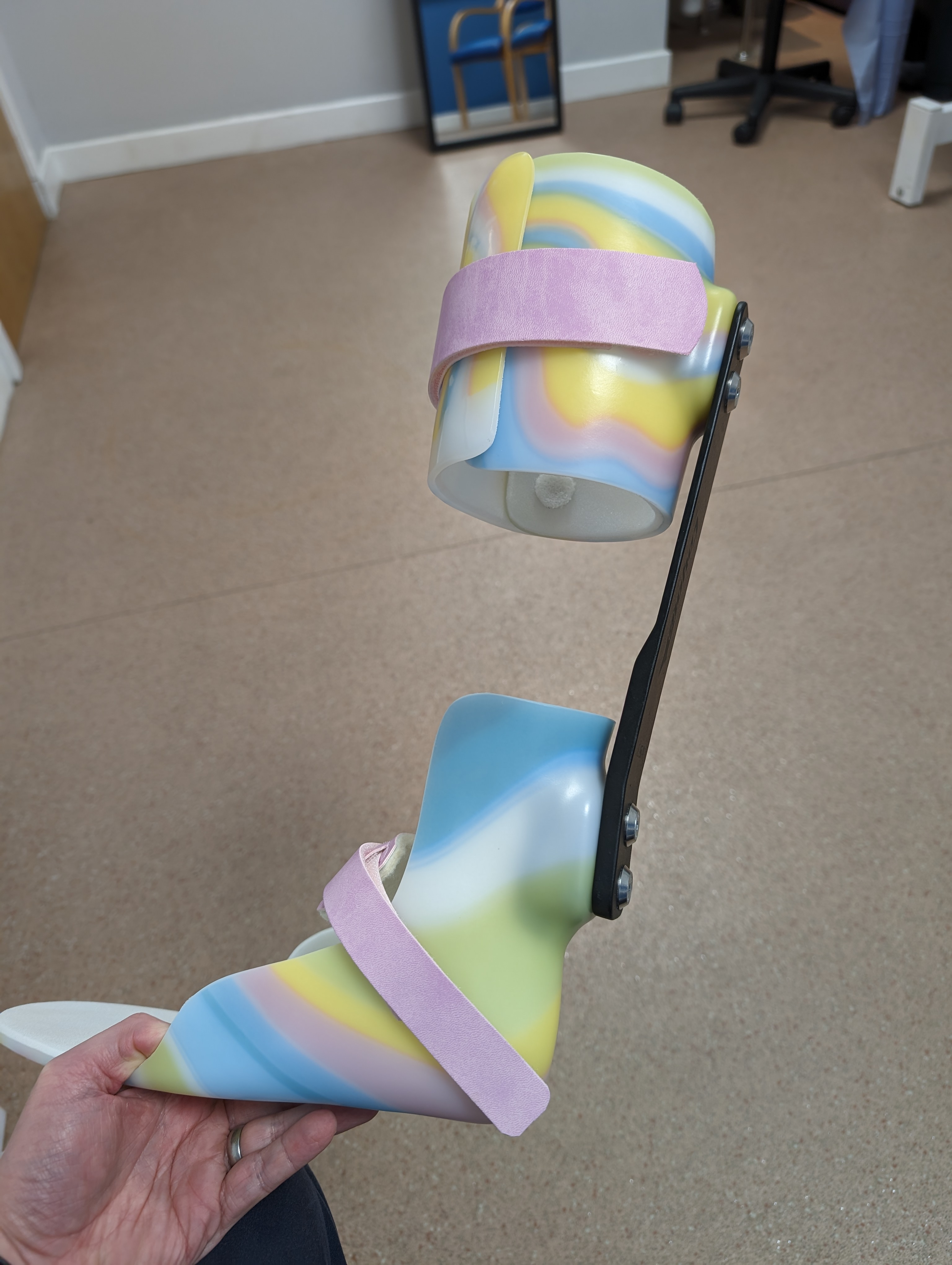
This form of device is relatively new to the UK market with similar devices only previously being available in custom carbon fibre. They can provide a more dynamic walking pattern and provide a spring when you walk.
Does the Buchanan Clinic Supply AFO’s
At the Buchanan Clinic we supply and produce most types of AFO’s. We believe that each device should enable the wearer to reach their maximal potential and will guide you to select the most appropriate device
We are also experts in activity / Sports specific devices. Our orthotists have designed custom AFO’s for use in cycling, powerlifting and boxing to name but a few. We love working with people to achieve a specific goal be it walking pain free to the shops or running a half marathon.
Book an Assessment
Further reading
We have posts on other styles of AFO

